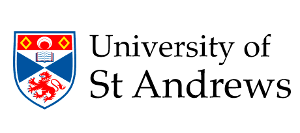Project Title
Understanding the scale, impact and potential mitigation of marine animal entanglement in the Scottish static gear fishery.
Entanglement
Marine animal entanglement in fishing gear is a global concern, considered by many to be the most significant marine mammal welfare issue of our time. In Scottish waters concerns regarding entanglement have been raised by the inshore creel sector, and the available data indicates that the frequency, rate and range of species impacted has been increasing in recent years. Entanglements have conservation, welfare, economic and human safety implications, however a thorough scientific understanding of the issue is data deficient. For example the amount of creel gear being deployed, and the association between fishing effort and the incidence, seasonality, severity or outcome of entanglements is unclear. Recent work has highlighted industry willingness to address this issue, and meaningful engagement with fishers will be essential to this project.

The project will take a transdisciplinary approach to explore theoretical and applied approaches to mitigating entanglement risk, by building on data and methodologies developed through two innovative programmes of research:- the Scottish Inshore Fisheries Integrated Data System project (SIFIDS) and the Scottish Entanglement Alliance (SEA). The main aims of the project are to:
- Infer the location, intensity and variability of static gear fishing activity including the number of creels and amount of rope being deployed.
- Conduct a series of surveys to measure Fishers’ perceptions, attitudes and motivations around entanglement, and understand the motives and barriers to fisher engagement with this topic.
- Develop behaviourally-informed, evidence-based interventions to promote Fishers’ reporting of entanglement events involving cetaceans, elasmobranchs and marine turtles, and support declaration of gear loss locations and quantities.
- Develop feasible, practical, industry-led data collection and mitigation strategies to reduce entanglement hazards whilst maintaining the economic sustainability of the fishery.
Supervisors
Dr Mark James (University of St Andrews), Dr Dave Comerford (Stirling University), Dr Andrew Brownlow (SRUC), Dr Kirstie Dearing (NatureScot), Dr Simon Northridge (University of St Andrews), Dr Tania Mendo (University of St Andrews), Prof. George Gunn (SRUC).
Funding
This project is funded through the SUPER Doctoral training partnership, in collaboration with St Andrews University, Stirling University, NatureScot and SRUC.
Contact
Email: em323@st-andrews.ac.uk

